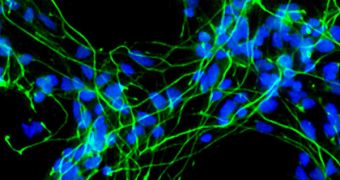Following a three-year-long study, scientists at the U-M Life Sciences Institute were finally able to prove that four genes were responsible for stem cell degradation with age and cancer control. The genes inhibit the activity of brain stem cells over time, which causes them no to regenerate and produce new tissue. The genes also play an important role in stopping tumors from growing out of control.
If stem cells can't regenerate, then the body they serve is bound to grow old. The recent study, published in the October 17th edition of the journal Cell, shows that four genes -Ink4a, Arf, Hmga2 and let-7b- are responsible for the aging of the stem cells, which in turn means that their regenerative abilities are diminished over time. One might say that, past a certain point, the body starts to shut down on its own.
The most interesting part about the discovery, say the researchers, is the way the four genes complement each other in their actions, working separately towards a common goal. If tissue begins to deteriorate and ages, the stem cells near it are inhibited from trying to repair it. Doctors think that this happens because the body believes that it's much easier to preserve its energy and construct new tissue, rather than desperately try to preserve the aging old one.
In addition, there exists a very high risk that old cells would mutate and become cancerous. The genes also play an important role in keeping tumors off, but sometimes cancer finds a way around them and prevents them from taking any action against it. "The more we study this issue, the more we think that tissue aging exists as a by-product of mechanisms that were created to protect us against cancer," said Sean Morrison, director at the U-M Center for Stem Cell Biology.
This a very interesting find, as it seems that cells age because the four genes are desperately trying to prevent them from mutating into cancer, which would in turn jeopardize the entire body. So a natural degradation process is preferred to mutations throughout the body. By learning to control these relationships, doctors could some day create a viable cure for old age, and keep cancer away at the same time.

 14 DAY TRIAL //
14 DAY TRIAL //